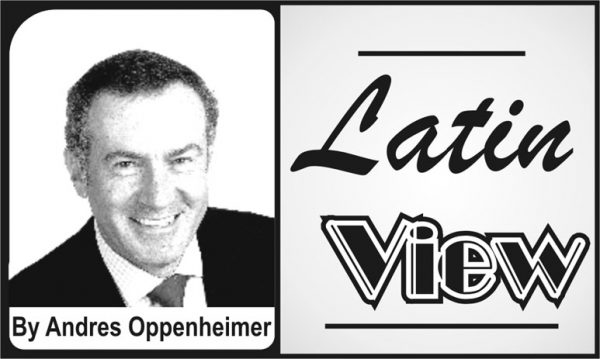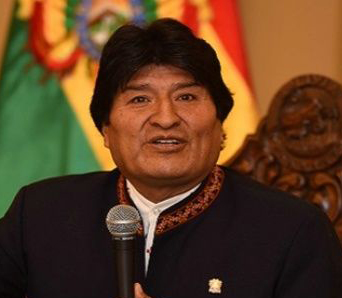 On the occasion of the Dec. 10 U.N. Human Rights Day, Kimberly Breier — the U.S. State Department’s top official in charge of Latin American affairs — sent out several tweets rightfully condemning the dictatorial regimes of Cuba, Venezuela and Nicaragua. But why she didn’t mention Bolivia?
On the occasion of the Dec. 10 U.N. Human Rights Day, Kimberly Breier — the U.S. State Department’s top official in charge of Latin American affairs — sent out several tweets rightfully condemning the dictatorial regimes of Cuba, Venezuela and Nicaragua. But why she didn’t mention Bolivia?
I’ve been reading her tweets of the past six months, and those of other top U.S. foreign policy makers, and I couldn’t find any criticizing the systematic destruction of democracy in Bolivia. Something similar is happening with Latin America’s biggest democracies: They have demanded the restoration of democracy in Venezuela — for which they should be applauded — but almost never say a word on Bolivia.
All of them should have raised their voices after Dec. 4, when Bolivia’s Supreme Electoral Tribunal — which is controlled by Bolivian President Evo Morales — approved Morales’ petition to run for a fourth consecutive term in 2019.
If he wins — which may happen, considering that he’s writing the electoral rules — Morales will stay in power until at least 2025, despite a constitutional prohibition of consecutive re-elections and the fact that the Bolivian people voted in a 2016 government-convened referendum against allowing Morales to run for a new term in 2019. Following the script of late Venezuelan demagogue Hugo Chávez, Morales has co-opted all independent institutions, changes laws and runs the country at his will. Critics refer to him as “Ego Morales,” among other things, because he built a $7.1 million museum to himself last year.
Before each of his elections, Morales promised not to seek re-election, only to change the rules and run again later. His arguments for his re-election have been such an insult to people’s intelligence that they often sound comical — almost.
After winning his first election and taking office in 2005, Morales changed the constitution and re-named the country as the “Pluri-national state of Bolivia.” Then he argued that the constitution’s prohibition of immediate presidential re-elections no longer applied, because Bolivia was now supposedly a new country.
After losing his 2016 referendum on his right to re-election, he claimed that the vote wasn’t binding. He later said he would run again anyway, citing the most ridiculous legal argument Bolivians had heard in recent memory — that the Inter-American Human Rights Conventions say everybody should be allowed to run for office. In other words, Morales turned a rule aimed at guaranteeing political rights for everybody upside down and interpreted it as a right for tyrants to stay in power indefinitely.
Yet, neither the United States, nor Latin America’s biggest democracies, nor the 34-country Organization of American States — which has also been a vocal critic of Venezuela, Nicaragua and Cuba — are raising their voices on Bolivia’s slow-motion coup d’etat.
It may be because Bolivia has not seen the kind of bloodshed that we have recently seen in Nicaragua and Venezuela and isn’t known to have as many political prisoners as those two countries or Cuba. And, as far as the Trump administration is concerned, it may be because there are not that many Bolivian-born voters in the United States, compared to the relatively big Cuban and Venezuelan voting blocs.
Former Bolivian President Jorge “Tuto” Quiroga, a Morales critic, is asking the OAS’ Human Rights Commission to officially ask the Costa Rica-based Inter-American Human Rights Court to rule whether a president’s perpetual re-elections can be considered a “human right.” A Court ruling against that idea would invalidate Morales’ bid for a new term in office.
“The Inter-American human rights convention should not be used to support a tyrant over the will of the Bolivian people, expressed in the 2016 referendum,” Quiroga told me this week. “And the international community should act now, before it’s too late.”
I agree. Many lives could have been saved in Venezuela — and millions of people would not have fled the country — if the international community had condemned Chávez when he started dismantling Venezuela’s democracy in the early 2000s. Bolivia is at the same point now. Countries should raise their voices now — before it’s too late.









